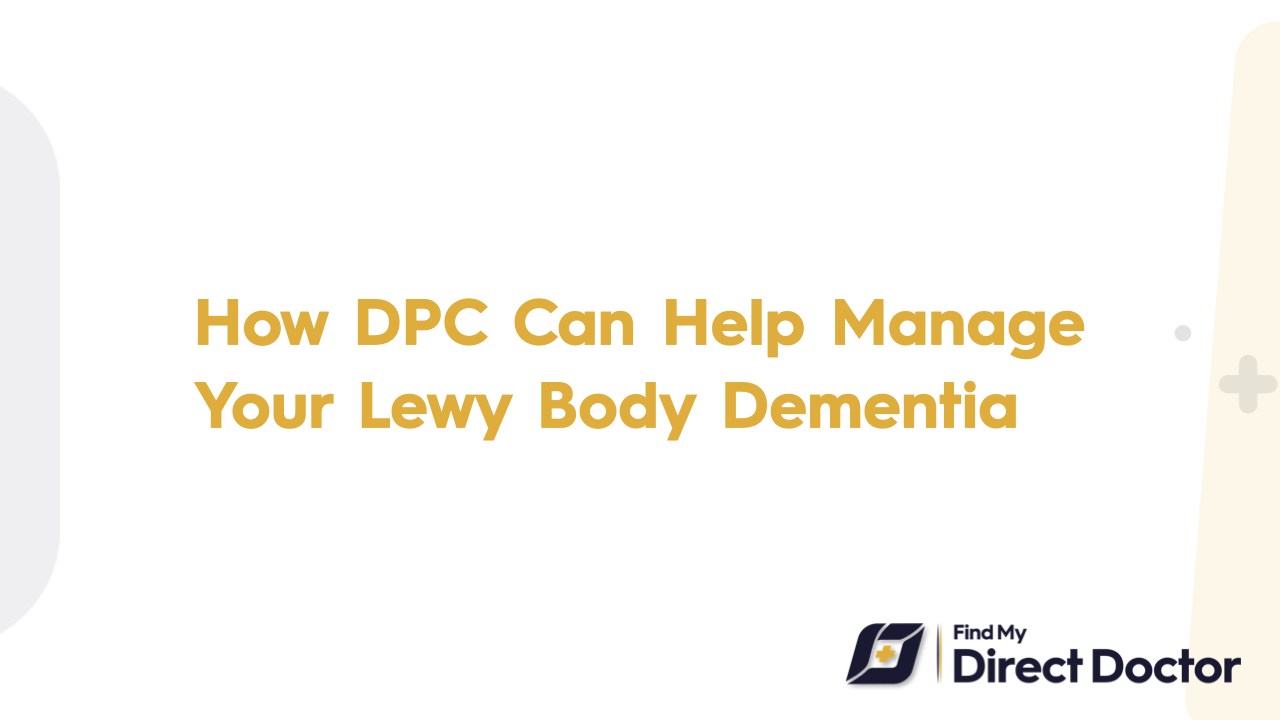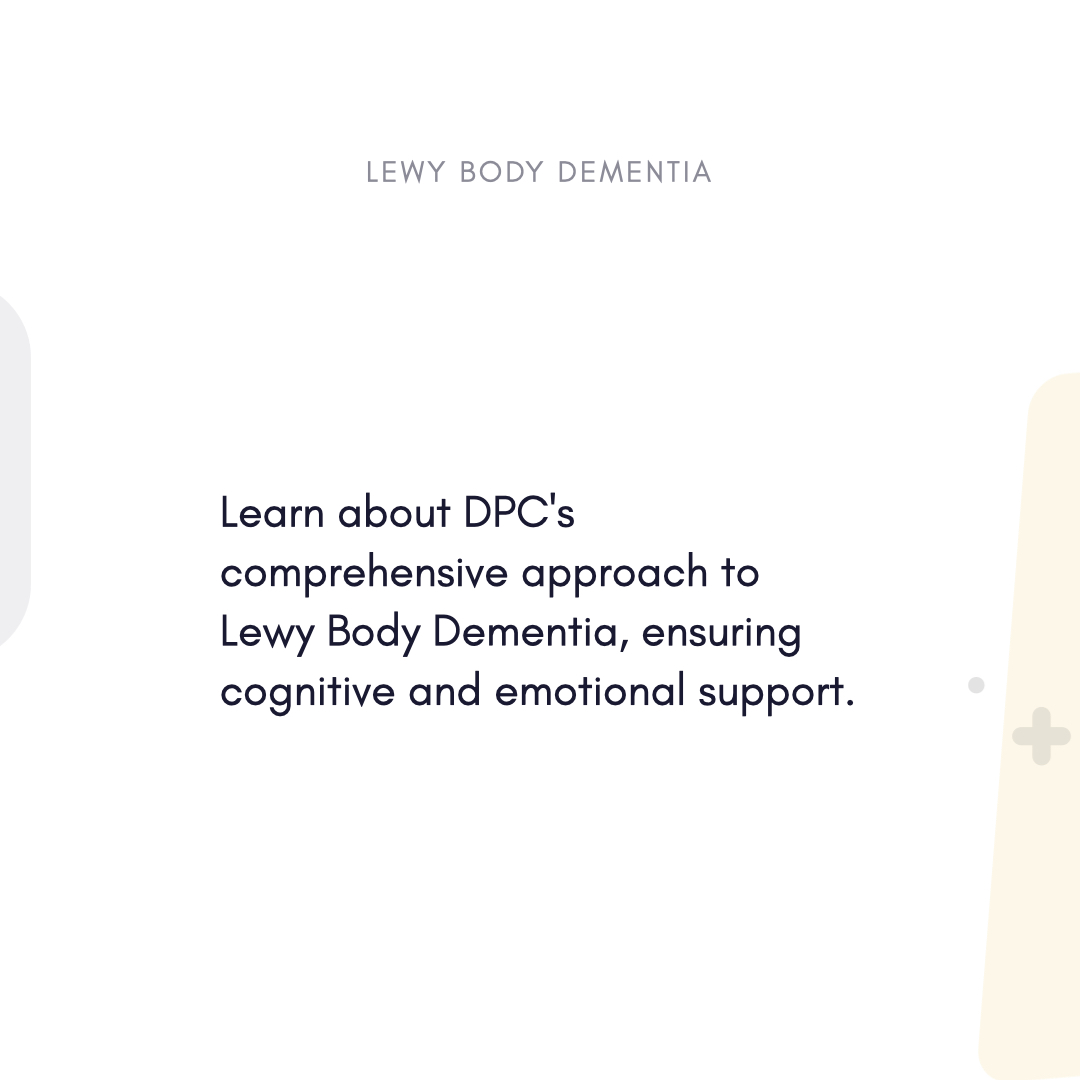Lewy Body Dementia and Direct Primary Care (DPC): Compassionate, Continuous Care for Complex Needs
You know how critical consistent, individualized care is if you or a loved one is navigating the erratic waves of Lewy Body DPC (LBD), a disorder marked by cognitive swings, hallucinations, and mobility issues. Affecting over 1.4 million Americans, LBD’s blend of cognitive decline, Parkinsonism, and sleep disturbances demands a care team that adapts rapidly as symptoms evolve. Direct Primary Care (DPC) offers a lifeline by combining predictable access, customized treatment, and caregiver support—free of insurance delays or fragmented care.

Knowledge of Lewy Body Dementia
Lewy bodies—abnormal protein deposits in the brain—cause this progressive neurodegenerative disease. Key features include:
- Cognitive fluctuations: Clear moments followed by confusion or disorientation.
- Visual hallucinations: Seeing people or animals not present.
- Parkinsonism: Slow movement, stiffness, or tremor.
- REM sleep behavior disorder: Acting out dreams, sometimes violently.
Unique challenges in LBD:
- Extreme sensitivity to antipsychotics (may worsen symptoms).
- Frequent falls due to motor instability.
- Caregiver burnout from 24/7 monitoring demands.
How DPC Transforms LBD Management
Under the membership model known as Direct Primary Care (DPC), patients pay a monthly fee—usually USD 100–USD 200—for unlimited access to their provider. For LBD families, this means:
- No surprise bills.
- No weeks-long waits for critical symptom adjustments.
- Treatment that evolves with the disease’s complexity.
1. Rapid, Adjustable Symptom Management
Following recommendations from the Lewy Body Dementia Association, DPC providers offer:
- Medication precision: Low-dose levodopa for mobility; rivastigmine or cholinesterase inhibitors for cognition.
- Antipsychotic avoidance: Alternatives like pimavanserin for hallucinations.
- Same-day crisis care: Address sudden falls, infections, or agitation without ER delays.
2. Coordinated Holistic Support
DPC ensures:
- Neurology collaboration: Share real-time changes in symptom progression.
- Sleep disorder treatment: Melatonin or clonazepam for REM disturbances.
- Mental health integration: Therapy for LBD-related anxiety or depression.
3. Caregiver Empowerment
DPC provides:
- Training programs: Safe transfer techniques or communication strategies.
- Respite care referrals: Connect families with affordable in-home assistance.
- Support networks: Local or online groups to reduce isolation.
Main Advantages of DPC for LBD Patients
- 24/7 access: Call or text providers during hallucinations or falls.
- Cost clarity: Save USD 1,000s by avoiding ER visits for LBD-related crises.
- Continuity of care: One provider tracks your loved one’s unique symptom patterns over years.
DPC’s Customized LBD Management
DPC tailors treatment to your needs:
- Personalized medication plans: Adjust cholinesterase inhibitors to balance alertness and side effects.
- Mobility safety: Levodopa dosage changes to reduce falls without over-sedation.
- Non-drug solutions for REM disorder: Weighted blankets or sleep hygiene.
- Crisis-preventive symptom monitoring:
- Home safety checks: Review tripping hazards, lighting, or clutter.
- UTI prevention: Quick urine tests to catch infections causing delirium.
- Symptom tracking apps: Record anxiety or hallucinations in real time.
- Caregiver-centered support:
- Emergency protocols: “Avoid Haldol!” scripts for paramedics.
- Legal/financial guidance: Medicaid planning or advance directives.
- Stress management coaching for overwhelmed households.
Real-Life Success Stories
- Case 1: María, 72, avoided antipsychotic-induced comas by following her DPC doctor’s “No Haldol” action plan and adjusted rivastigmine dosage.
- Case 2: The Carter family reduced ER visits by 80% using DPC’s 24/7 support for their father’s falls and UTIs—saving USD 12,000 yearly.
Frequently Asked Questions: DPC and Lewy Body Dementia
- Q: Can DPC manage severe LBD at home?
A: Yes! DPC coordinates crisis care, telehealth neurology, and home health aides to delay nursing home placement.
- Q: Is DPC within fixed income budgets?
A: Indeed. Often under USD 150/month, families save on ER trips, specialist co-pays, and medications.
- Q: Should we see a movement disorder specialist?
A: DPC providers share records easily and secure discounted cash rates for neurologist visits.
Why DPC Wins for Lewy Body Dementia
LBD’s unpredictable symptoms require a care model as flexible as the disease:
- Quick adjustments: Modify medications the same day after hallucinations or cognitive decline.
- Early detection training: Teach families to spot infection or delirium signs.
- Preventive focus: Regular home safety checks reduce hospitalizations and falls.
Navigate LBD with Confidence Using DPC
Lewy Body Dementia need not mean chaos or isolation. DPC helps your family recover happy moments amid the struggle by providing a compassionate partner who offers relentless advocacy, individualized care, and caregiver relief.
- From medication precision to crisis prevention, DPC supports you at every turn.
- Financial clarity—no hidden fees or insurance barriers.
- 24/7 access to modify treatment during symptom flares.






